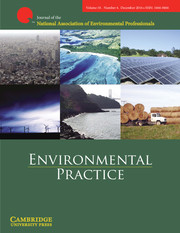Recent events in the media (December 2009) have led me to prepare a long overdue essay on how we advance scientifically and administratively. The particular event in mind is the release of e-mails among top climatologists which hint at a less-than-perfect system of deduction from data to theory. This was accentuated by later retractions of rather grandiose statements that the Himalayan Glaciers were melting. Administratively, reliance on theory can have a dramatic affect on management actions, grants, proposed regulations, and a myriad of other results coming as ripples on the pond of knowledge.
But I will not immerse myself nor the readers in the question of whether the science and theory put forward by the UN Intergovernmental Panel on Climate Change (IPCC) or lay proponents like Al Gore are correct. That is another tale for another time by a better informed writer.
The topic at hand is our collective and individual response as scientists to both the development and the promulgation of the theories. For the record, the situation I address has run rampant through numerous programs in which science, administration, and public pressures have become intertwined and intermingled. In many cases to the point that players have changed teams, with scientists becoming either advocate or opponent; where administrators have taken on the role of “scientist” for no more salient reason than that they were the ones who were sought out to be interviewed by the media. These situations exist, certainly in the arena of global warming, now renamed global climate change as a means of damage control, and less publicly, while no less prominently, in the arena of such things as coral bleaching, artificial reefs, and Everglades (or any other system) restoration projects. Further, this is not a new phenomenon, as exemplified by cold fusion and cloning and by the tribulations of Copernicus.
The most visible example, however, lies within the history of global warming and the IPCC. At one point, it had been declared that there was consensus that anthropogenic influences have had a significant impact on our climate in a way that has led to near catastrophic warming of the globe. The key word is consensus. Our beloved Mr. Webster defines this as “unanimity,” whereas many less well schooled linguists feel it is just a majority. Personally, I defer to Webster. Millions, if not billions, of dollars have been spent and are continuing to be spent from federal grant dollars to additional requirements in local zoning ordinances designed to address warming and the soon-to-follow coastal inundation. The problem is that there is not, and has never been, and is not likely to be consensus on this issue within the foreseeable future: And this lack of blind acceptance is the mainstay of science. Some scientists and others involved in the discussion have sunk to settling the issue in the same manner as fourth graders in the school yard. The technique seems to be that whomever yells loudest must be right. We have not seen this level of debate for centuries.
And that, my friends, is the point. Which view is correct is completely irrelevant to this essay. What is relevant is that we, as professionals, whether we be scientists or administrators, absolutely must be responsible enough to check the facts, and their sources, and move forward responsibly. This means that when there is no consensus, we must continue to ask questions, seek clarifications, and engage in debate designed to find the truth, not to declare a winner. When there is consensus, we should be very, very suspicious.




